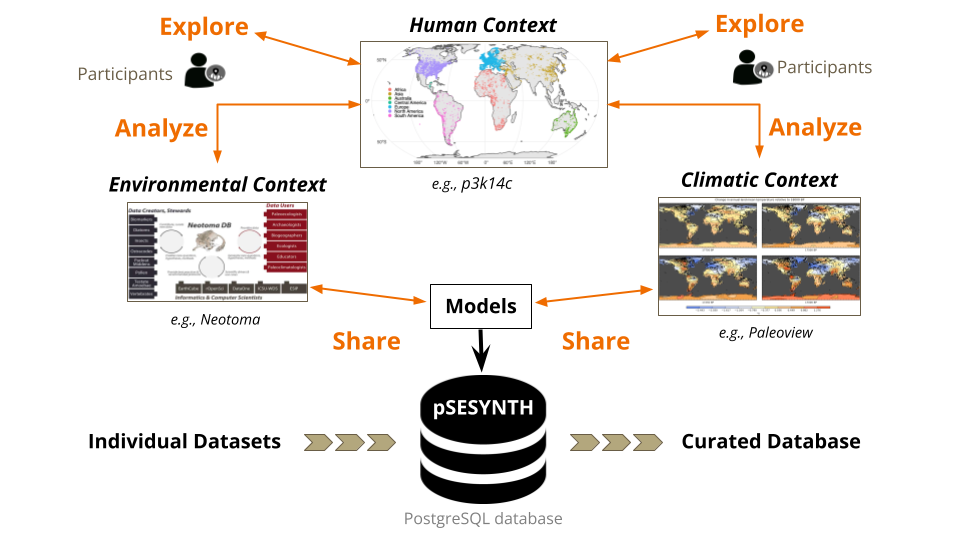Objectives
By addressing these three objectives, pSESYNTH is committed to fostering a deeper understanding of our shared history, environment, and the intricate web of connections that shape our world. Join us in this exciting journey of discovery and transformation. Together, we can unlock the past to build a more sustainable future.
Interdisciplinary Multiproxy Exploration
Delving into the processes that enable us to uncover past drivers of environmental change. This is achieved through an interdisciplinary multiproxy approach, which is organized into three vital themes:
Paleoecology: Utilizing methods such as pollen analysis, charcoal examination, and diatom research.
Paleoclimatology: Incorporating the study of biomarkers, stable isotopes, varves, and numerical simulations.
Archaeology: Leveraging radiocarbon dating, phytolith analysis, the study of archaeobotanical remains, and material culture examination.
Quantitative Analysis of Interdisciplinary Links
In-depth quantitative analysis of the connections between paleoecology, paleoclimatology, and archaeology. We focus on research questions that possess both generic and specific relevance across the Global South. For instance, we investigate the existence of connections, or commonalities, between colonial legacies and the evolution of socio-environmental systems in the Global South. Additionally, we explore questions specific to each sub-region, such as the spatial and temporal scales at which human-environmental systems were coupled or uncoupled from climatic fluctuations.
Creating a FAIR Database
The dissemination of the outputs and products generated by the project. We aim to do so through the development of a database that adheres to the FAIR principles (Findable, Accessible, Interoperable, and Reusable), as defined by Wilkinson et al. in 2016. pSESYNTH participants will integrate existing single- and multi-themed databases (including Neotoma, NOAA, PANGAEA, LinkedEarth, CARD, ArchaeoGlobe, and HYDE 3.2) to enrich the novel Global South database. The FAIR-ICON principles will serve as the foundation for database organization, ensuring comprehensive geographic coverage, comparability, and accessibility of time-series data synthesis. This initiative is crucial for advancing and mainstreaming paleoscience research in the Global South.

